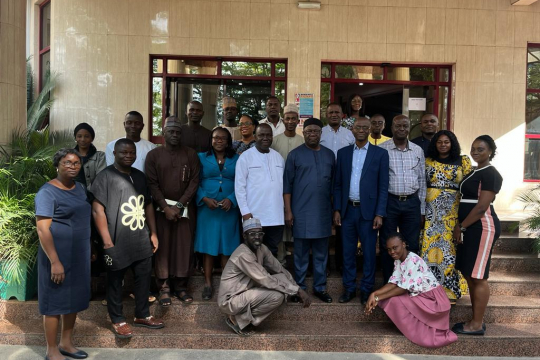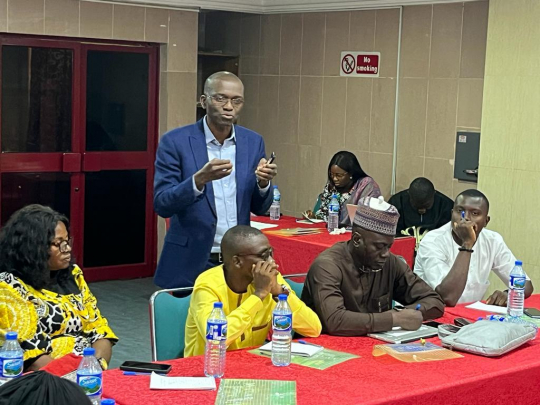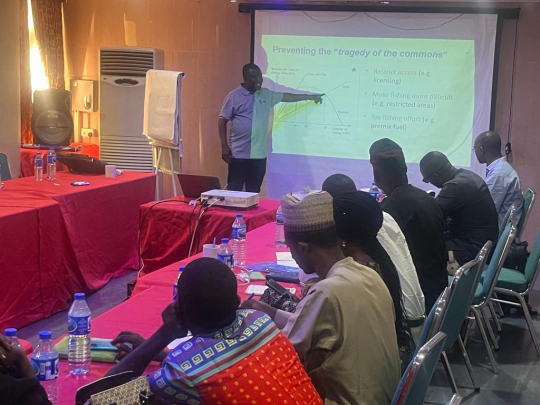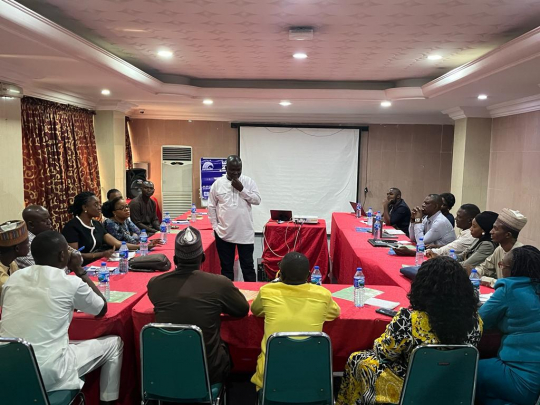EfD Nigeria, in partnership with EfD Ghana, conducted a training session for fishery officers and policymakers on how to apply simple bioeconomic analysis to develop a fisheries management plan for Nigeria. The training took place on 13th-15th November 2023.
The training workshop was under the auspices of the project titled Enhancing Fisheries Policy Initiatives in Nigeria Based on EfD Ghana Experiences: The Blueprint for Developing Fisheries Management Plan (FMP) for Nigeria.
The project was inspired by Ghana's successful development and implementation of a fisheries management plan. The researchers hope to replicate the success to Nigeria’s fisheries sector, which is currently challenged by many issues, especially overfishing and illegal, unregulated, and unreported (IUU) fishing activities.
Need for a fisheries management plan
The Director of EfD Nigeria Nnaemka Chukwuone highlighted the urgency of developing and implementing an effective fisheries management plan in Nigeria to mitigate the problems and the resulting economic and social consequences.
EfD Nigeria is working with relevant government agencies to review the Nigeria Sea Fisheries Act of 1992. It is believed that a fisheries management plan, that was implemented in Ghana in 2015-2019,will lead to measures to curb overfishing, IUU, the use of fishing gear that damages the benthic floor of the ocean and other challenges affecting the development of the Nigerian fisheries sector.
Nnaemeka Chukwuone said that the target of the workshop was to equip the participants with the knowledge of simple bioeconomic modeling tools that will help them develop a comprehensive plan for Nigeria that will also provide for the management of small pelagic species.
The plan should be holistic
The Director of EfD Ghana, Professor Wisdom Akpalu, who served as the workshop facilitator, exposed the participants to simple fisheries bioeconomic modeling and shared insights from Ghana's experience in developing and implementing a fishery management plan.
He emphasized the importance of a holistic approach that balances ecological conservation, economic viability, and social equity.
Participants commit to safeguarding the fisheries sector
During the workshop, participants engaged in interactive sessions, group discussions, and case studies to identify key issues in Nigeria's fisheries sector that the plan should address.
The workshop concluded with the formulation of a preliminary action plan, outlining the next steps for the development and implementation of a fisheries management plan that is tailored to Nigeria's unique context.
Participants left the workshop with new knowledge, networks, and a shared commitment to safeguarding Nigeria's fisheries for future generations.
The event marks a significant milestone in transboundary cooperation to improve the fisheries sector in West Africa.



